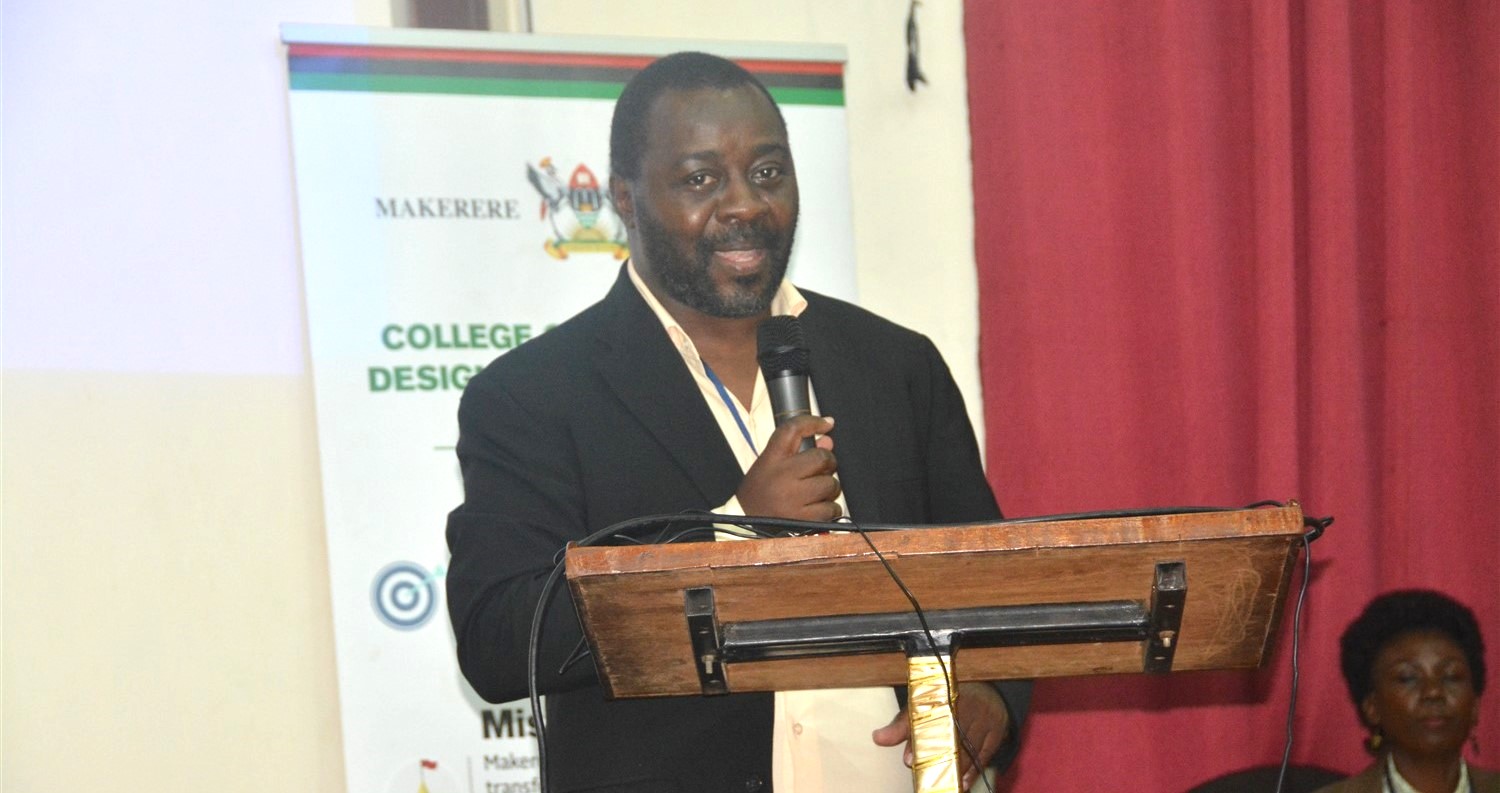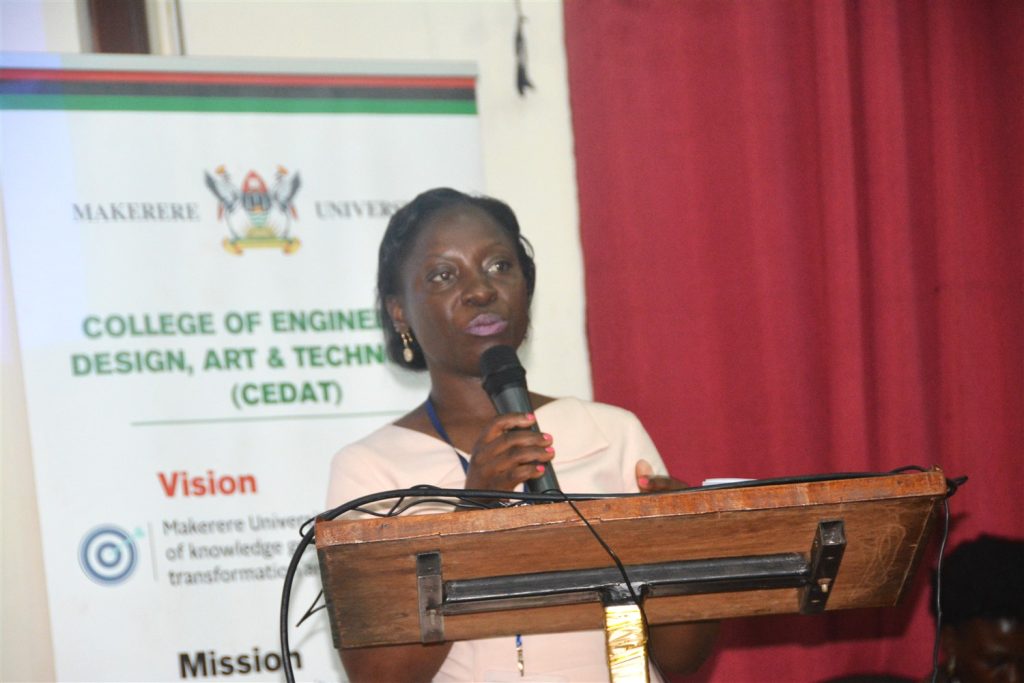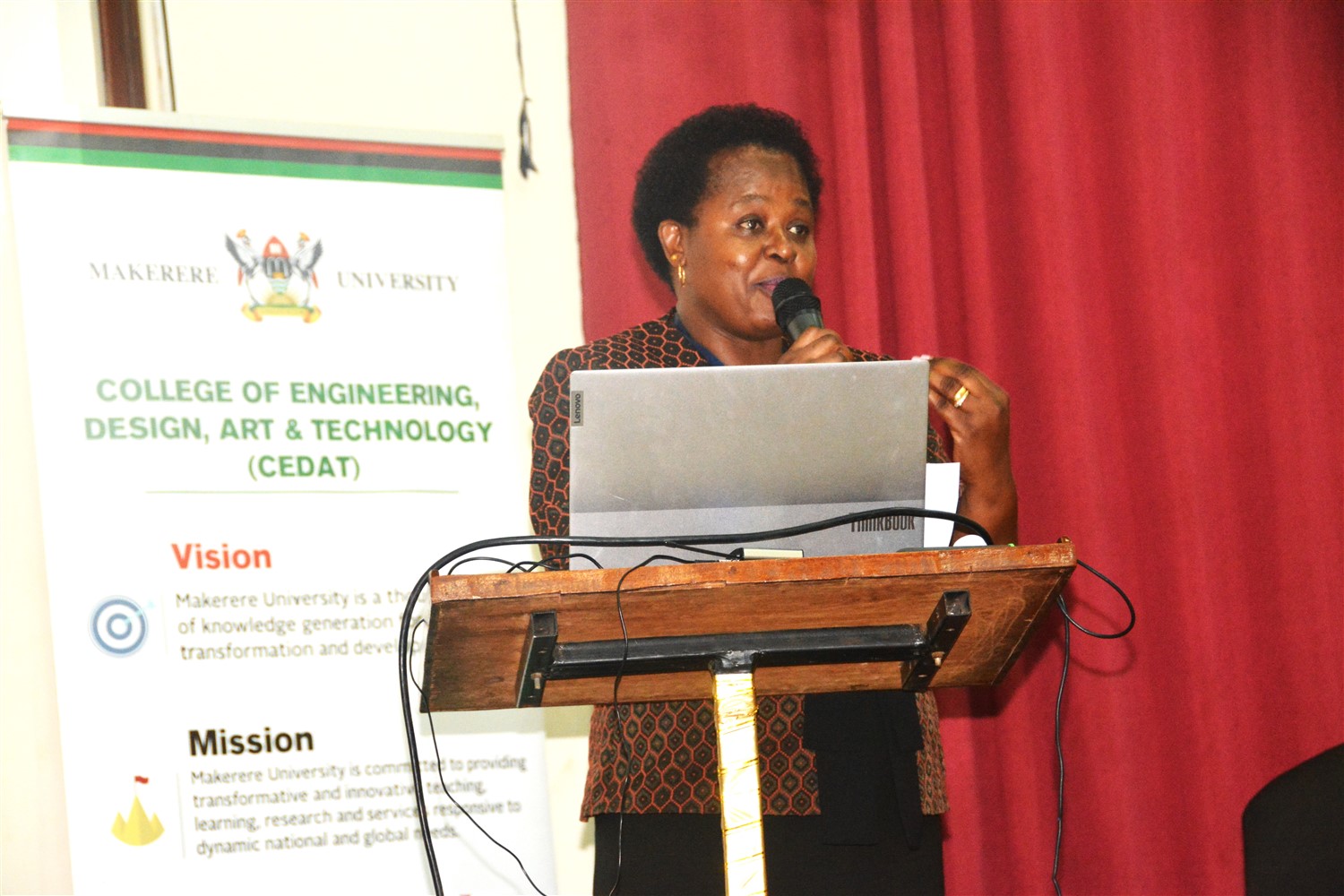Dr. Ronald Kizito, the Principal Investigator presents a brief about the project
Researchers at the College of Engineering, Design, Art and Technology (CEDAT) using Artificial Intelligence have come up with an innovation to aid translation of Luganda language written text into speech.
A team of researchers led by the Principal Investigator Dr. Ronald Kizito from the Electrical and Computer Engineering Department undertook a study they called, ‘A Luganda Neural Text-To-Speech System for Health Promotion and Accessibility for Health Promotion and Accessibility’.
The study supported by the Government of Uganda through the Makerere University Research and Innovation Fund (MAKRIF) was aimed at coming up with an innovation that will help the dissemination of health messages to a wide Luganda-speaking audience who may not be in a position to read written text, which is usually the mode used in sending out information through literature like fliers.
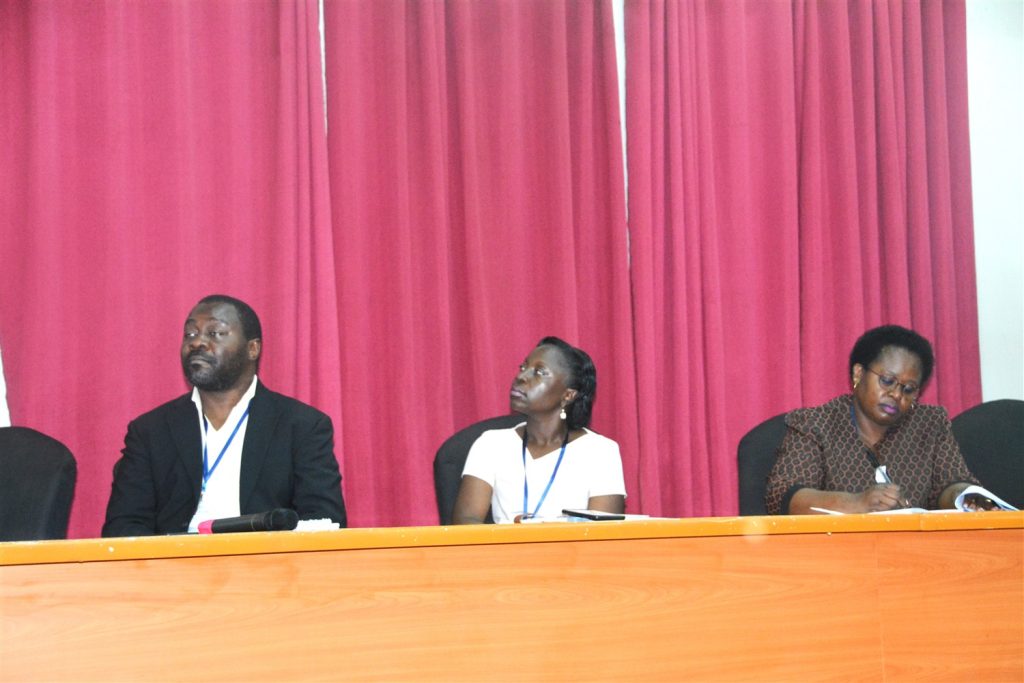
During a research dissemination seminar held at the college on Tuesday, January 23rd, 2024, Dr. Ronald Kizito said communication was all about conveying information by whatever medium and therefore there was a need to identify the most effective way to do so.
He said the study was one way of ensuring that messages reach the intended users by putting in place such mechanisms to address what normally leads to communication breakdown. He explained that there were several factors affecting effective message delivery including visual impairment, illiteracy, and a physical disability which in one way or another makes one unable to read Luganda and hence the innovation.
The team that is undertaking this multi-year research project also includes Dr. Andrew Karumba, Dr. Jonathan Serugunda, Dr. Samai Namyalo from Linguistics, and Dr. Deo Kawalya from Literature Department.
Dr. Jane N. Kiyimba, while speaking on behalf of the Dean, School of Engineering Assoc. Dorothy Okello, and the Head of the Department, of Electrical and Computer Engineering Dr. Abubaker Wasswa Matovu expressed optimism that the research findings would be beneficial to a large section of the Luganda-speaking community. We have Artificial Intelligence and it is here to stay, she said, while encouraging participants to utilize it for the good of the human race. She congratulated the team for the work done in the first year of the project implementation.
Shalina Kawuma, a Sociologist from the Ministry of Health, Department of Health Promotion, Education and Communication represented Ag. Commissioner, Richard Kabanda at the dissemination event. She extended an invitation for the research team to the Health information technical working group to make a presentation of the research findings. She explained that the group comprised of different organizations would be useful in gaining input into the work and help in having it disseminated as well as ensuring that the Ministry of Health utilizes the findings to improve areas not going on well.
She said the Ministry of Health normally sends out Luganda messages, unfortunately, 17 million Ugandans who understand Luganda have issues of illiteracy, visual impairment, and physical disability which makes them unable to access a given document. Using the Software tool that can read this text out loud, turning text to speech was handy, she noted. The narrative is good and we have been wasting a lot of time since we are involved in audio-visual print, getting the narrative fast will be helpful especially if it can work in all other 21 languages in the country, she said.
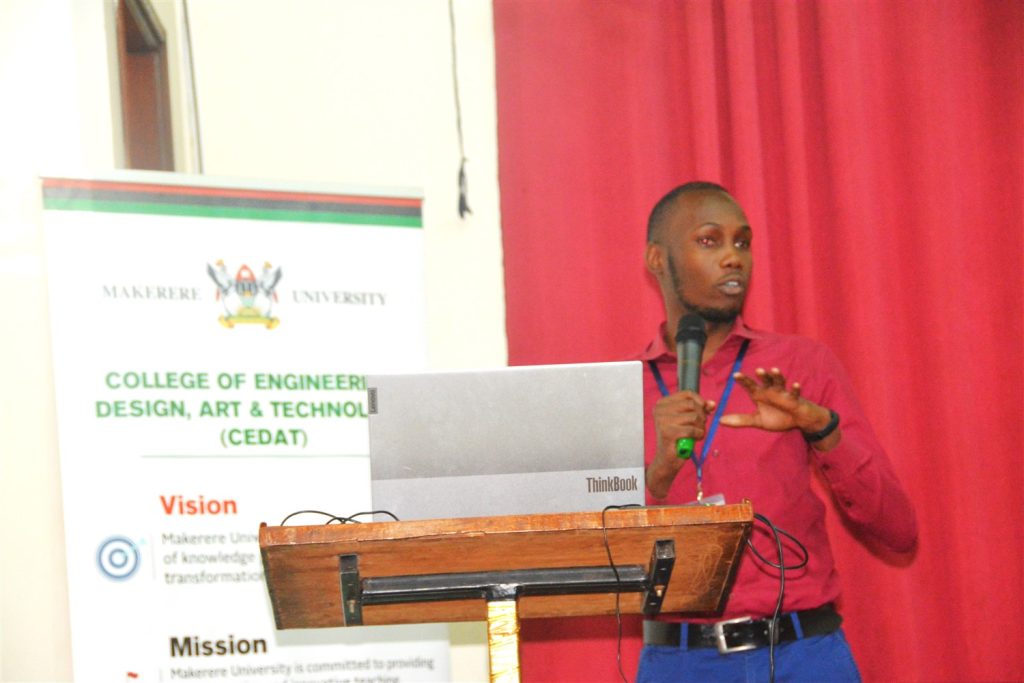
The study, ‘A Luganda Neural Text-To-Speech System for Health Promotion and Accessibility for Health Promotion and Accessibility’ is aimed at creating a Luganda TTS model, building a 10 million word Luganda Text corpus, and building a 20-hour single speaker Luganda speech Dataset.
The Methodology used was a collection of text corpus- record script- Audio and train TTS model. As of now, the results include a 10-million-word corpus, a 20-hour speech corpus, and a Luganda TTS model. The intention is to get any possible combination of words or letters that the computer will be ready to read.

